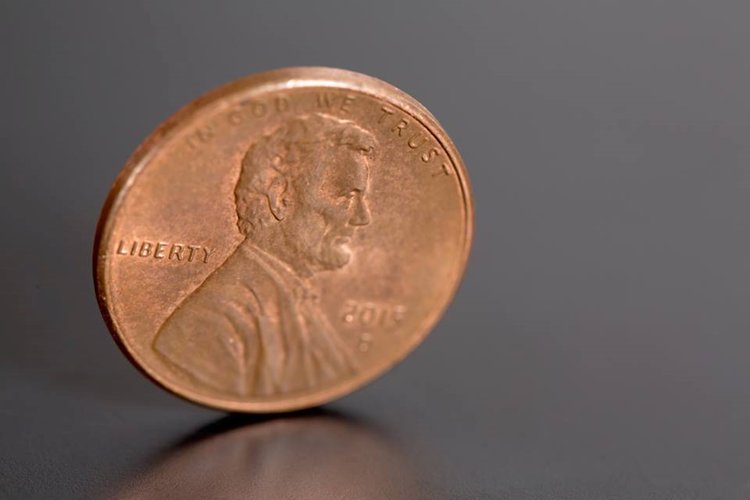
It has only been one week since I've arrived in China and I've already come across loads of cringeworthy translations. Check out this notice for guests I stumbled upon at a hotel in Beijing.
Can you locate the mistakes in this translation and render it into something at least a little reminiscent of English?)))

Translators can smell mistakes in your holiday cards.
You've been warned...
>:-)

Time for a Christmas joke! (for the language nerds)
What do you call Santa's elves?
Subordinate Clauses)))

Every group of friends has one. You know, that one person who always says they’re down to do something – go out for happy hour, meet up for the movies, grab a bite to eat, engage in some retail therapy, etc, but at the last minute – they’re nowhere to be found or either come up with some lame excuse as to why they can’t make it.
I’d like to introduce you to – the FLAKE. A ‘flake’ is basically an unreliable person; someone who agrees to do something, but never follows through. There’s also a verb form ‘flake’ or ‘flake out’ – to decide not to go do something at the last minute; to ditch or bail out.
Here are a few examples:
“Victor said he was coming, but he’s such a flake. I wouldn’t be surprised if he doesn’t end up coming at all.”
“Dude, it’s been so long since we’ve gone to that really cool bar on Montrose Avenue. Don’t flake on me this time – I’m really looking forward to going and I don’t want to go alone.”
“C’mon Sarah, your flakiness is getting out of control. You used to always be there for me but now, ever since you started dating Richard, you’ve been cancelling all of our plans.”
I think we’ve all been a bit flakey at one time or another, but the main thing is to not make it a habit. You usually call someone a flake or flakey when they habitually cancel plans or never commit to anything. ‘Flaking out’ can refer to a one-time event that doesn’t necessarily mean you’re a flakey person.
I don’t know about you, but I have a tendency to be flakey in the winter))) What about you? How do you deal with flakey people?

Let’s face it – Russian is no joke! Nevertheless, it’s a little comforting to know that even native speakers sometimes make mistakes))
Let’s take a look and a few of the most common mistakes that native Russian speakers make))
1. «ОПЛАТИТЕ ЗА ПРОЕЗД» – I’m not sure if I’ve ever heard this or even if my ear would register this as a mistake, but I can say 100% that this isn’t something I’d say. «Оплатить проезд» and «заплатить за проезд» are much better choices.
2. One pretty big mistake that a lot of Russians make – mostly on social media – deals with the use of «-ТСЯ» and «-ТЬСЯ». Again, this typically occurs on social media and is on par with “there”, “their,” and “they’re” in English in terms of the severity of the mistake. Yes, most Russians learn this by the 5th grade, but when trolling, sometimes you just throw all grammar out of the window)))
3. Many native speakers of Russian are also guilty of writing «ВООБЩЕМ» and «ВОБЩЕМ», instead of «Вообще» and «В общем». I’m also guilty of this, but I do it on purpose to sound less bookish and add a little flava)))
4. Native Russian speakers (and English speakers!) are notorious for saying «ЭКСПРЕССО» instead of «Эспрессо». Luckily, the people in this community wouldn’t dream of making such a mistake)))
And the list goes on! So, now that we’ve seen what mistakes Russians make in their language, what mistakes do you make in your NATIVE language? Also, Russian speakers – are there any other mistakes that your ‘compatriots’ make that just get under your skin? Let’s vent below!)))

I’ve had many people tell me over the years that Chinese was poised to give English a run for its money in terms of being the world’s next great ‘lingua franca’.
Side note - according to most definitions, a lingua franca is a language used to communicate between people who speak different languages natively.
Yet if we use this definition of ‘lingua franca’, and keeping in mind that it is estimated that around 1.5 billion people use English as a second language (with the number set to increase in the coming years), we can easily see that English definitely takes the top spot, but in my opinion, for reasons that you might not think.
Although Chinese (all Chinese varieties) has more native speakers (900mln) than English (339mln), English definitely more than compensates for this lack of native speakers by the number of second language speakers (603mln), and if we add in the number of second language speakers of Chinese (190mln), we get a total of just over a billion speakers of Chinese (all varieties- 1,090mln) and just under a billion speakers of English (942mln).
In addition to the MANY reasons why Chinese will never become a global lingua franca (of course Mandarin is the lingua franca of all Chinese varieties), based on how difficult it is to access certain popular sites due to government censorship, this language won’t be going ‘viral’ anytime soon.
The world communicates online now and China’s great firewall has contributed to US companies dominating global online activity. Everyone outside of China can’t get enough of Twitter, YouTube, Google and Facebook – and knowledge of English is a key skill in accessing a huge wealth of information.
Meanwhile, the Chinese internet community is mostly talking to itself behind the firewall. And by the time this firewall is taken down, the global conversation will be even more firmly entrenched in English.
So, these are just my own personal views of why I think English will dominate for at least another 50-100 years. I would not be against another language dethroning English, but for now, I think English shall reign supreme)))
What’s your take on the situation? Do you agree? Disagree? Or do you think the next lingua franca is neither one of these languages and another will spring up and surprise us all?))

So you tell me the phonetic structure of language is arbitrary…
…but what makes you Saussure?)))

Cheers to those who are learning a foreign language… math)))

The Tale of The English Professor
"In English," he said, "A double negative forms a positive. In some languages, though, such as Russian, a double negative is still a negative. However, there is no language wherein a double positive can form a negative."
A voice from the back of the room piped up, "Yeah, right."
hehehe :p

You ever come across someone who you just can’t stand, yet fate insists on testing your patience by repeatedly allowing you to run into this person, often at the worst possible times? Well, have I got the phrase for you)))
EX.
“Ugh, I think Jerome likes me. He keeps turning up like a bad penny and it’s getting on my last nerve. Sometimes I just want to tell him to get lost.”
So, you might have already guessed what this phrase means, but here’s another example.
The troublesome nephew who appears only at family weddings, funerals and holiday dinners, never invited but always mysteriously materializing at your elbow and asking for a loan – this is another example of a classic “bad penny.”
One of the many theories regarding the origin of this phrase comes from the mid-18th century. Pennies today are viewed as nearly worthless by many people (the government actually loses money as it costs 1.7 cents to make 1 cent!), but when the term “bad penny first appeared they were serious money. This made them targets for counterfeiters, and to reach into your pocket or purse and discover that you had ended up with such a counterfeit coin, a “bad” penny, was a depressing and annoying experience.
This usually happens to me after a vacation. Somehow when I go digging through my backpack to pay in exact change I always seem to pull out the ONE foreign coin out of the millions of kopeks also buried inside. Uggggh!
So, now it’s your turn! Let’s see if you can use the phrase “turn up like a bad penny” correctly.